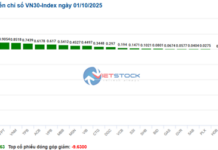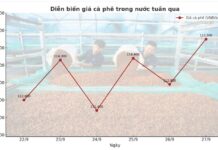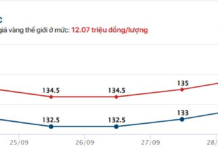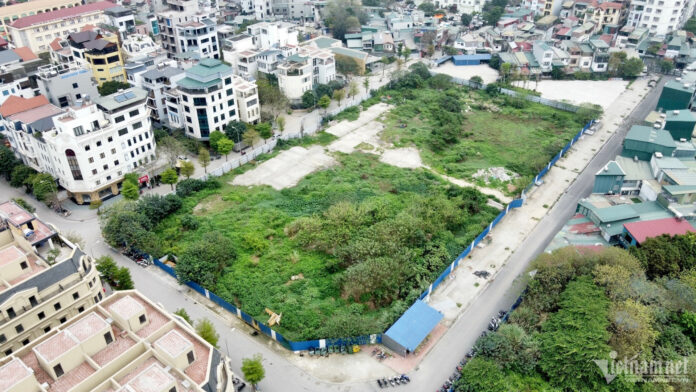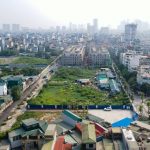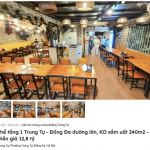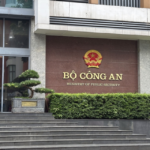Housing Project Delays: A Setback for Vietnam’s Social Housing Goals
At a recent regular government press conference, Deputy Minister of Construction Bui Xuan Dung provided an update on the country’s social housing initiatives. From 2021 until now, Vietnam has seen 619 social housing projects with a total of 561,816 units.
Of these, 79 projects comprising 40,679 units have been completed, while 128 projects with 111,688 units have been licensed and are under construction. Additionally, 412 projects with a scale of 409,449 units have received investment approval but are yet to commence construction.
In the first six months of this year, eight projects with 3,136 units were completed, and five projects with 8,468 units were licensed and commenced construction. Furthermore, nine projects with 8,795 units have received investment approval.
According to the Deputy Minister, the target for 2024, as per the proposal for 1 million social housing units, is to complete 130,000 units. However, only 2.4% of this target has been achieved so far, leaving almost 100,000 units to be finished by the end of the year.
Economic expert Dr. Dinh Trong Thinh shared his concerns about the slow progress, stating that it would be challenging to meet the target of constructing 130,000 social housing units this year.
Hanoi, being one of the major cities with a high demand for social housing, has faced limitations in investment, according to the Ministry of Construction. By the end of 2025, the city plans to complete three projects with 1,700 units, meeting only 9% of the housing needs of low-income earners.
In the last three years, Hanoi has had only one social housing project open for sale in Nam Tu Liem district. In May 2023, over 1,300 people participated in a lottery to win the right to purchase nearly 150 units in the first phase of this project, priced at 19.5 million VND per square meter (including VAT and maintenance fees).
Towards the end of last year, another social housing project was inaugurated in Me Linh district. This project consists of four 6-story blocks, offering approximately 280 apartments.
While the demand for affordable housing among the population is increasing, many social housing projects in Hanoi remain stagnant, with some being nothing more than vacant lots.
One such example is the social housing project at NO1 land plot, commercially known as Udic EcoTower, located in the new Ha Dinh urban area (Thanh Tri district). This project, spanning over 3,700 square meters, is intended to serve the relocation needs of the city’s site clearance. As per the requirements set by the Hanoi People’s Committee, the investor was supposed to commence construction in the fourth quarter of 2022, with the goal of putting the social housing into operation by the fourth quarter of 2024. However, the project has not yet started.
At the beginning of 2024, the Hanoi People’s Committee issued a decision to fine the investor VND 140 million for the delay in implementing the investment and construction of the project.
A leader of the Urban Infrastructure Development and Investment Corporation (UDIC) – a single-member limited liability company and the legal representative of the joint-venture investor – stated that the construction timeline for the Udic EcoTower social housing project has been extended, and they proposed to initiate construction in the fourth quarter of this year.
However, the leader expressed uncertainty about this timeline, citing various factors, including procedural issues.
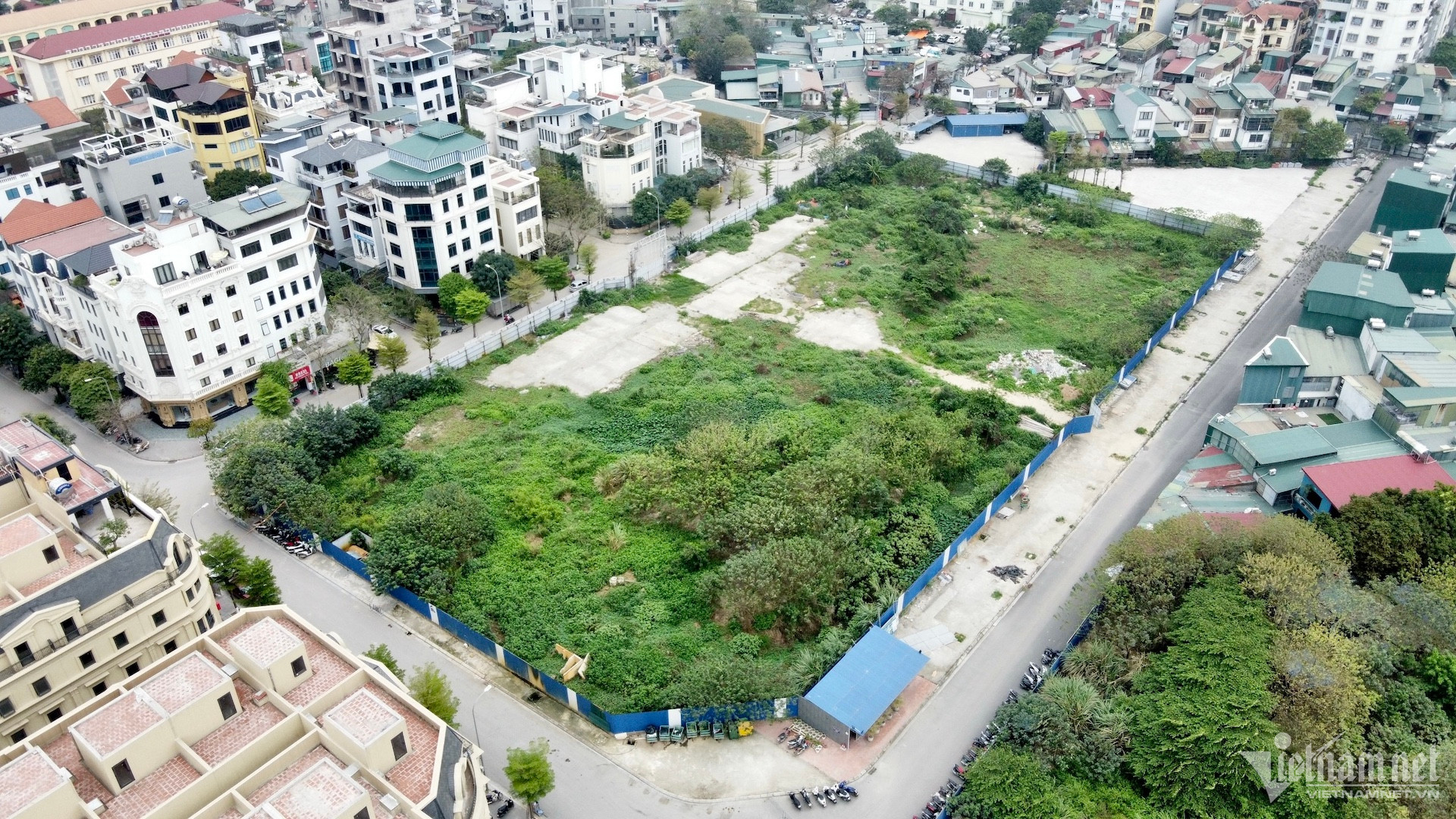 Udic EcoTower Social Housing Project Fined for Delayed Construction. Photo: Hong Khanh |
Another project, Rice City Long Bien, located in Long Bien district, is a joint venture between Him Lam Thu Do JSC and BIC Vietnam JSC. While the project has completed land clearance, it is awaiting a decision on land allocation.
According to BIC Vietnam JSC, there have been no significant developments in the past three years, and the company hopes for an early decision on land allocation to facilitate the project’s implementation.
A separate project by BIC Vietnam, located on To Huu Street in Nam Tu Liem district and named Rice City To Huu, has also faced delays in completing the legal procedures necessary for construction to begin.
New Laws Aim to Untangle Red Tape, but Effective Implementation is Key
Mr. Vuong Duy Dung, Deputy Director of the Housing and Real Estate Market Management Department (Ministry of Construction), shared his insights on the matter. He stated that three laws—the Land Law 2024, the Real Estate Business Law 2023, and the Housing Law 2023—which came into effect on August 1, introduce numerous amended provisions. These laws are expected to alleviate challenges in the real estate market development when applied in practice.
Mr. Dung highlighted that social housing investors will benefit from more favorable regulations, such as those pertaining to the calculation of purchase and sale prices. He believes that all the changes and additions to the legal framework for social housing will increase the real estate supply and improve the structure of social housing.
“When the mechanisms and policies for social housing are unblocked, the supply of products will increase, meeting the needs of the people. An increase in supply will also impact housing prices in the coming time,” Mr. Dung asserted.
Commenting on the impact of the new laws, a leader of a Hanoi-based real estate enterprise shared that, in reality, businesses have not witnessed significant changes, especially regarding legal procedures. The leader emphasized the need for time to thoroughly understand the new laws and assess their effectiveness.
Dr. Dinh Trong Thinh concurred, acknowledging the persistent challenges in initiating social housing projects. “New projects still face complexities similar to those in the past. In reality, there hasn’t been much progress, whether in site clearance, land handover, or paperwork,” he remarked.
Dr. Thinh identified three primary obstacles: land-related procedures and ownership certification, compensation for site clearance, and legal procedures. He noted that while the Land Law 2024 is now in force, it will take some time for businesses to obtain land for their projects. He also anticipated challenges with compensation for site clearance but expressed optimism that the new law’s compensation mechanisms would expedite this process.
Regarding legal procedures, Dr. Thinh emphasized the need to create a more open mechanism to facilitate businesses’ implementation of plans and projects, many of which remain on paper.
“In South Korea, they built 5 million social housing units in just 2 years. We aim for 1 million units by 2030, but we’ve only managed a few thousand so far this year. While we have amended our policies, the key question now is how to implement them most effectively and swiftly,” Dr. Thinh stressed.
He also advised local authorities, including Hanoi, to pay attention to planning to ensure that social housing projects have infrastructure and social connectivity. This would prevent situations where social housing is built but remains unoccupied due to a lack of supporting amenities.
Hồng Khanh
The most extensive bribery case ever in Thanh Hoa: Numerous suspects prosecuted for “Giving and Receiving Bribes”
The Provincial Security Investigation Agency (PSIA) of Thanh Hoa province announced on January 31st that it has made the decision to initiate a prosecution against 23 individuals in connection with the offenses of “Accepting bribes” and “Giving bribes” as stipulated in Article 354(3) and Article 364(2) of the Criminal Code.
“Prosecution of government officials, land registration officers, and tax department employees in the largest bribery case ever”
The Thanh Hoa Police Investigative Agency has initiated legal proceedings against 23 individuals involved in the crimes of “Bribery” and “Receiving bribes”. This is the largest bribery case in terms of the number of suspects ever discovered and apprehended by the Thanh Hoa Police.

